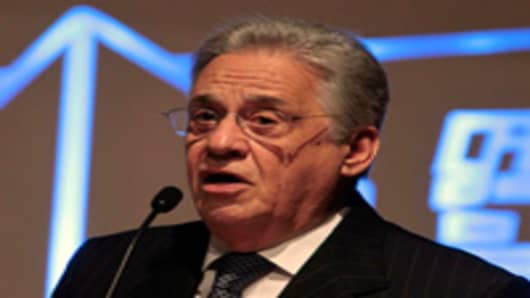It is not possible to control the value of Brazil's currency through taxes on foreign capital, former President Fernando Cardoso told CNBC Monday.
He thinks it "better to leave the capital flow more open."
"I understand (the taxes are) necessary because the real is overvaluated. But what is the meaning of overvaluated? It depends on the world situation, on the U.S dollar, not just Brazil's set of faults," he said.
He said the current government of Dilma Rousseff has to control public expenses and encourage savings.
"It is important to keep the economy in equilibrium," he said. "It is important to keep the stability and increase savings. There is no other recipe. The only recipe is to invest more and more" by stimulating markets.



